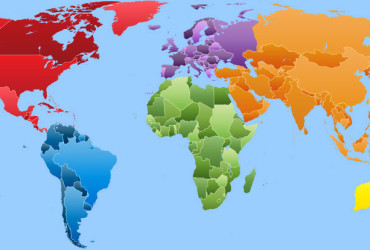When we were little kids we all formulated plans for our future professional selves that, more than likely, followed extremely different paths than those that we follow presently. One of you out there was going to be a fire fighter, a medical doctor, an engineer, a police officer, a track star, a farmer, a painter, or a professional flying trapeze artist. Whatever it was—that was your passion of the moment. For the most part, we have more than an idea of what our professional life might look like these days. We’ve probably collected our thoughts and made them a little more consistent and realized, YES a food scientist is the most PERFECT job I possibly could have!
I tried to be vine-famous for two weeks and lost patience. Ever since then, I’ve settled pretty whole-heartedly on food science as well. However, before this decision I was interested in another job: magazine editing, specifically for women’s magazines—fashion, exercise & science, nutrition…etc. I also wanted to be an inventor of phone apps, but clearly that ship has sailed.
So although I feel lucky to have found the secret—that food science is the best place to be—something still bothers me a little. I cannot be sure, but I feel food scientists are treated with a little bit of animosity by the public , perhaps out of fear?
It might just be my childhood dream perking up again, but I have observed something and I don’t think it is okay.
In women’s health magazines, among other public media, regular contributors as well as advisors help create pieces about popular women’s health topics. These advisors are referenced when outside experts are utilized for extra advice and know-how. Common Women’s Health advisors include anthropologists, cardiologists, dermatologists, exercise scientists, gastroenterologists, gynecologists, nutritionists, oncologists, psychologists and a handful of other medical doctors. In addition, a ‘green-living’ expert, life coaches, weight loss experts, as well as an expert-vinyasa-flow-yoga instructor. These are all regular contributors, meaning they are consistently referenced when their expertise on a current topic is needed.
This is quite a collection of outside experts. BUT, what about food scientists? Nutritionists offer information about food, but we can contribute as well, especially more generally about food production processes, food microbiology and safety, food chemistry as it relates to recipes and flavor development, as well as how food may affect your senses and how that might affect well being, among many other topics. So why is it that we seem to constantly be left out, across the board?
Is it the title? Is Food Scientist too offensive to the public? Do they know what a food scientist is? Does it connote an aire of mad “science-ness” in a food context that doesn’t sit well with readers? I can’t be sure, but I think it is time to note the benefits of food science. We are not mad, at least most of us. And our research is far-reaching and incredibly relevant.
We should be heard. And sometimes we are. Briefly.
One of our own, Jessica Cooperstone of the Ohio State University, was recently quoted in an article in Women’s Health (November, 2014):
“Green and orange aren’t just for Dolphins fans and Oompa Loompas. Pairing avocado with orange veggies can increase your access to Vitamin A, a key nutrient for eyesight and healthy immune function per The Journal of Nutrition. Provitamin A (converted to vitamin A by the body) is fat soluble which means you can absorb it better when it’s eaten with foods rich in unsaturated fat (like avocados) says study co-author JESSICA COOPERSTONE, a P.h.D candidate at the Ohio State University.”
This is a prime example of how food science research can contribute to these magazines. However, it was never mentioned that Jessica is a Food Scientist or a student of food science, or now officially a PhD in food science (GO JESSICA!). In fact, no mention of food science is present whatsoever.
I cannot say for certain that the lack of food science reference is purposeful nor can I say that it was not. What I do know is that food science needs to be appreciated for what it is and more for what it offers. There is tremendous research accumulating in food science departments across the country and globe. I think it is food science’s turn to be recognized for the impactful field it is.

Source: www.giphy.com
Alex Pierce is a graduate student in the Food Science and Technology Program at The Ohio State University. Her research interests include sensory and psychophysics, in particular the differences between orthonasal and retronasal aroma perception and their neural and physiological basis, as well as their potential benefit on cognitive functions.






This! This! and exactly This! However, I wonder if a lot of the issue is that people tend to be confused and/or scared and/or intimated (perhaps not so much scared) by not just the word “scientist”, but simply the phrase “science”. To have something explained so intimately to you by an expert is terrifying, but to hear it from someone whom you didn’t even know should have / could have conceivably existed (ie: food scientist, what?) can be equally stressful. That’s one of the reasons people oft confuse us with nutritionists, or chefs, or any of the other two…in that they don’t realize that “food scientist” actually means a scientist who studies food, but upon finding out exactly what that is as: one who studies the transformation of a raw commodity into what’s on your table, the automatic assumption is you are “one of those” who is pushing down processed foods, etc. Well, the list could go on even though we do so much more than make something raw into a box of food on your shelf.
I think another contributory factor of us being not-well-noticed is probably because our discipline, being as multi-disciplinary as it is, allows for our research to be disseminated into other more concentrated fields (think cardiology, for certain foods, etc. etc.) that people don’t oft consider that a bigger over-arching scheme (like this discipline) could even spawn such multi-faceted ideas…as some random movie would say, “it’s inconceivable”.
Don’t get me wrong, I ABSOLUTELY 100% COMPLETELY AGREE with everything in this; it baffles me and frustrates me that food scientists are not the people who should be consulted as experts, and instead it’s [insert here]. I wonder if this doesn’t come down to scientists giving credit to where credit is due, to where origins of ideas come from, etc. If that were to happen, then we’d get credit, and people would pay attention and probably recognize us as being the affectors of change?
I LOVE this article! I agree that “Food Science” is more often perceived as a bad thing thanks to people like the Food Babe, but we CAN change this by speaking out, and seeking opportunities to share our expertise. I think even talking about what we do on a average day can help broaden the public perception. This is precisely why I write Day In The Life blog posts at greeneyedguide.blogspot.com. My last post is about ingredient testing, something I feel compelled to talk about because there’s a growing population convinced food (and especially supplement) companies don’t do any safety or efficacy testing. http://greeneyedguide.blogspot.com/2015/01/ingredient-testing-day-in-life-of-food.html?m=1
Years ago after an IFT conference, I proceeded to attend a Fancy Food Show. I found out there that a Food scientist/food technologist is perceived to be someone who “put those chemicals to food” thus the distrust. it is not easy at a casual conversation to explain the role of additives, but i do remember saying that food science and technology is not always about adding anything at all.
Fast forward to last year, my former student who is now an executive chef, told me that when I was teaching them Food Chemistry in the culinary school, he did not think much about the subject matter, but later realized how significant it was in understanding what goes on when he was making a dish; that indeed the Maillard reaction, the denaturation of proteins, gelatinization of starches, emulsification and the other topics that he thought were unimportant are essentials to good cooking.
It is interesting to note how Molecular Gastronomy / Modernist Cuisine is now shaking up the culinary world!
it is interesting how much more space chefs are given to transform food compared to food technologists. The molecular gastronomy trend in particular takes pride in combining strange ingredients to make unexpected foods while traditional food technology tries to play all that down and look for clean labels and “natural”. I do think it’s really important more food scientists publicly take pride in their work. this article was a really good contribution.
Thank you everyone so much for the comments, a great discussion. Maybe some day in an ‘in-person’ format we can discuss further better ways to present ourselves to the public and help communicate our positions and how diverse they really are.